
Curious how life’s full-circle tale telling can center on dark blotches decorating fish scales.
The last time I’d photographed Florida’s Bryan and Greg Watts, they gleefully grinned while holding redfish — the inshore powerhouse with copper scales and a spot (sometimes multiple) marking their tails.
Sixteen years later, I trained the Canon lens on the same grinning twins as they showed off a pair of freshwater delights with more freckles than Howdy Doody.

Crappie, or “speckled perch,” as Greg prefers, may seem like a downshift for what was arguably, southern saltwater’s most accomplished inshore tournament team. But as sure as the points on their 1/16-ounce jigs, nothing could be farther from the truth.
The fish are smaller, the boat and motor significantly less edgy, and the tidy sponsor-laden jerseys have yielded to comfortably faded cotton t-shirts.
More birthdays and more gray hair; but if you think Greg and Bryan Watts have lost one ounce of the competitive drive that crowded their mantles with trophies, think carefully before putting your money on the table.
I saw a certain look in their eyes when they made their living chasing redfish in the new millennium’s first decade and I saw it again when less-than-cooperative crappie made ‘em work at it.
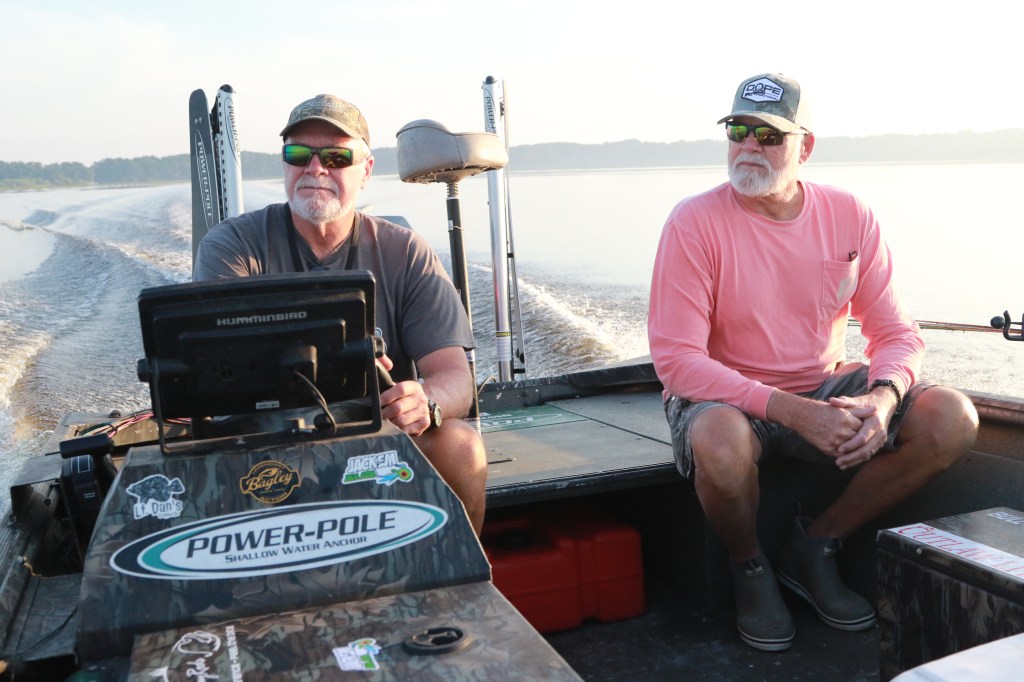
In line for the brine
Now making their homes in Lithia and Frostproof, respectively, Bryan and Greg grew up fishing Auburndale, Florida’s Lake Juliana. Regulars in local jackpot bass tournaments during the 80s and early 90s, the brothers had minimal saltwater experience until the rise of well-organized inshore tournament circuits in the early 2000s piqued their interest.
“When we were bass fishing, we had kids and we grew a fiberglass business (1986-2000), so fishing all the time went out the window,” Greg said. “We heard there was going to be a redfish tour (early 2000s), but for me and Greg, it could’ve been Nile perch; it could’ve been shellcracker.
“It didn’t matter. We just wanted to compete.”
Quickly taking to the coastal scene, the Watts had established themselves as capable saltwater anglers by the mid 90’s, with success in annual events like the Islamorada-based Herman Lucerne Memorial Tournament (Everglades). Back-to-back wins at the 2000 and 2001 Lucerne events would be their break-through moment.
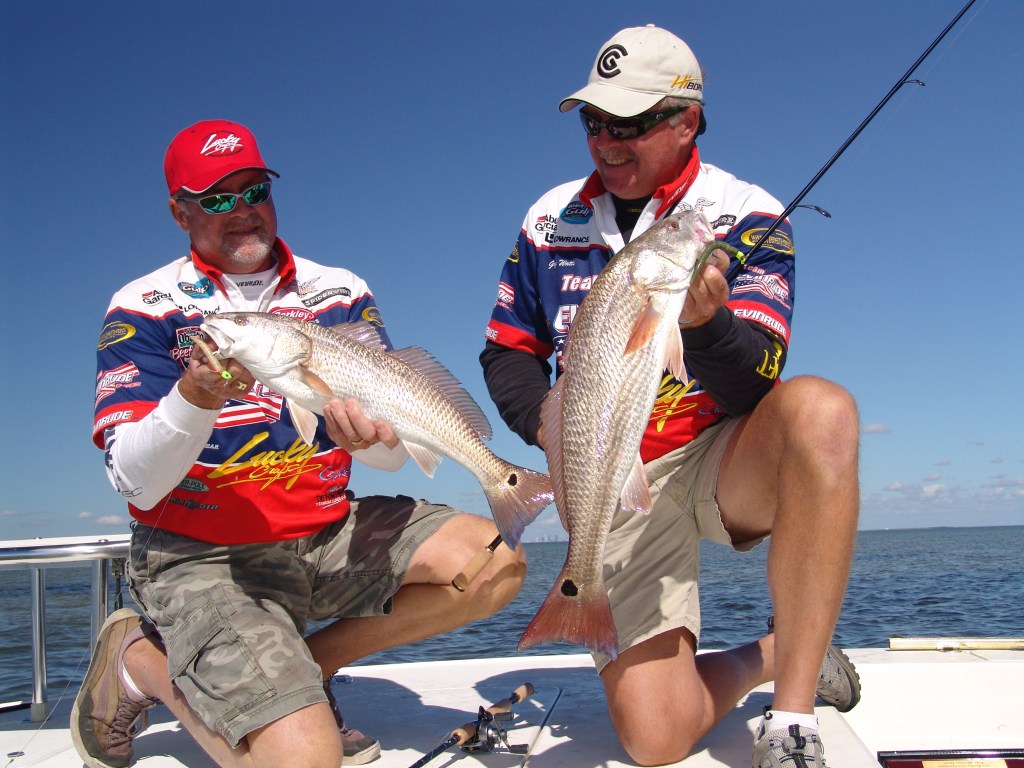
The new millennium would find the competitive redfish scene blossoming with three major trails — the Inshore Fishing Association (IFA) Redfish Tour, FLW Redfish Series, and the Redfish Cup. With ESPN programming, the latter brought major media exposure and anchored the Watts’ ability to earn their living as professional anglers.
“When the (redfish trails) broke out, it was gung-ho for me and Greg,” Bryan said. “That was exactly what we wanted to do and we learned how to compete on redfish circuits.”
Their skill and work ethic yielded impressive results. In the Redfish Cup’s 2003 inaugural season, the Watts won the debut tournament in Port Aransas, Texas, the trail’s first Championship (Venice, La.), and Team of the Year.
The Watts also won the 2001 IFA Redfish Tour Championship, twice claimed the IFA Team of the Year title and notched multiple regular season wins. Earning the FLW Redfish Series Team of the Year crown in 2005, gave them major titles on the three professional circuits.
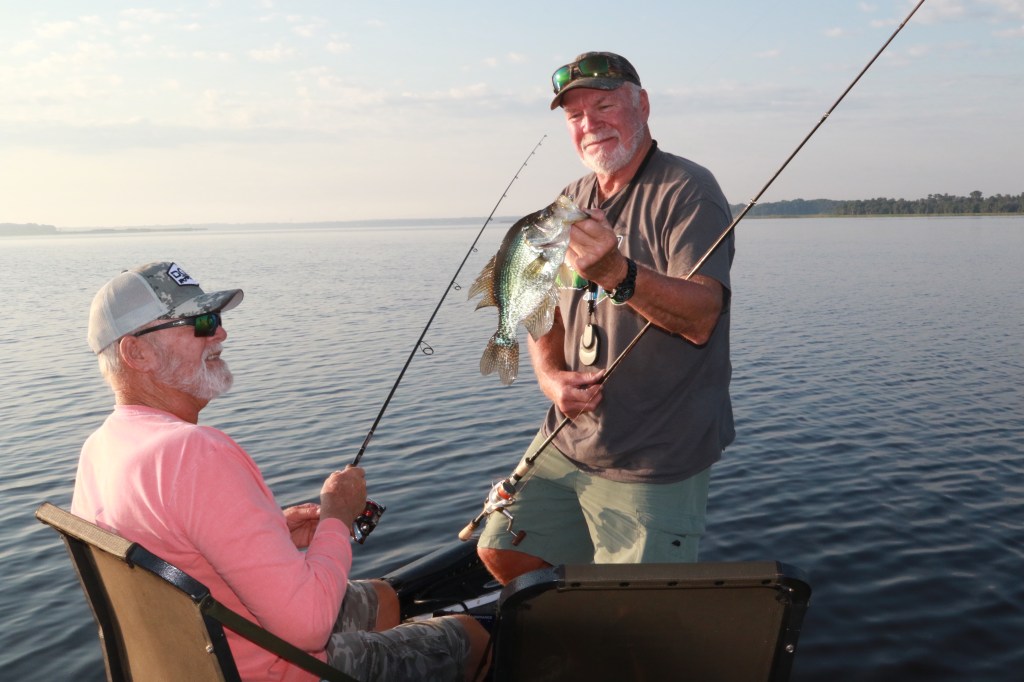
Abrupt end & a new beginning
At the height of the Watts’ tournament careers, the 2007-2009 recession would end the heyday of professional redfishing. Disappointing, but the Watts’ relationship with friend/fellow competitor/Power-Pole inventor John Oliverio would present an opportunity that has kept them in the industry they love.
“When the big-money redfish tours shut down, John Oliverio said, ‘Now you can come work for me,’” Bryan recalls. “That’s the best thing that ever happened to me and Greg.”
Their roles as manufacturer’s reps take the Watts brothers throughout the south, keep them in touch with saltwater and freshwater anglers, and allow plenty of room to track down a few bass and crappie. Currently, their pace is much more relaxed than the nearly constant motion of full-time tournament fishing and all the related promotional/media work.
“Being older, I don’t know that we could take five to six days in a row of pre-fishing and tournament fishing like we used to,” Bryan said. “So, we kinda went back to our roots with something that we dearly love. We can fish when we want to.”
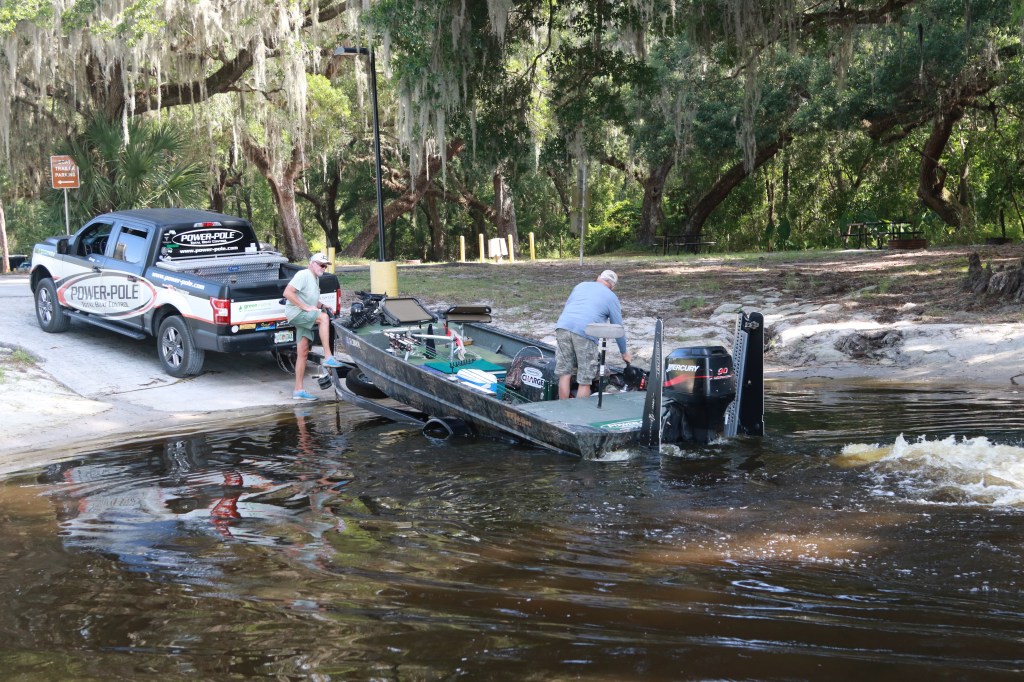
Relaxed but ready
As Greg backed his 18 1/2-foot aluminum Triton from the trailer, a limpkin plucked freshwater mussels from the water’s edge and small alligators scurrying from their hiding spots did their best to evade the 8-footer sneaking through the nearby spatterdock. This Tuesday morning Lake Arbuckle crappie hunt brought a much more relaxed scene than tournaments of yesteryear, but the Watts were on their game — just like the old days.
Contrasting winter/spring’s shallow aggregations, summer finds crappie following offshore bait schools. Birddogging their “specks,” the Watts displayed the same focus, patience and determination that made them the most decorated redfish team to ever lace a rod.
Case in point: Greg chased a good one for several minutes before lining up the right cast to pendulum his Jack Em jig through the requisite zone for these upward-looking fish. Crappie require less hook set force than redfish, but enthusiasm is a horse that won’t be bridled.
“Got you!” Greg whispered, with just enough snarl to reveal a fire that’s still burns hot.
This and several more crappie earned no paycheck, no trophy; only my wife’s appreciation for a fresh fish dinner. (I shoot more than I fish.) Nevertheless, with each of the morning’t catches, Greg and Bryan beamed with the same accomplishment I’d seen years ago at several of the nation’s top redfish venues.
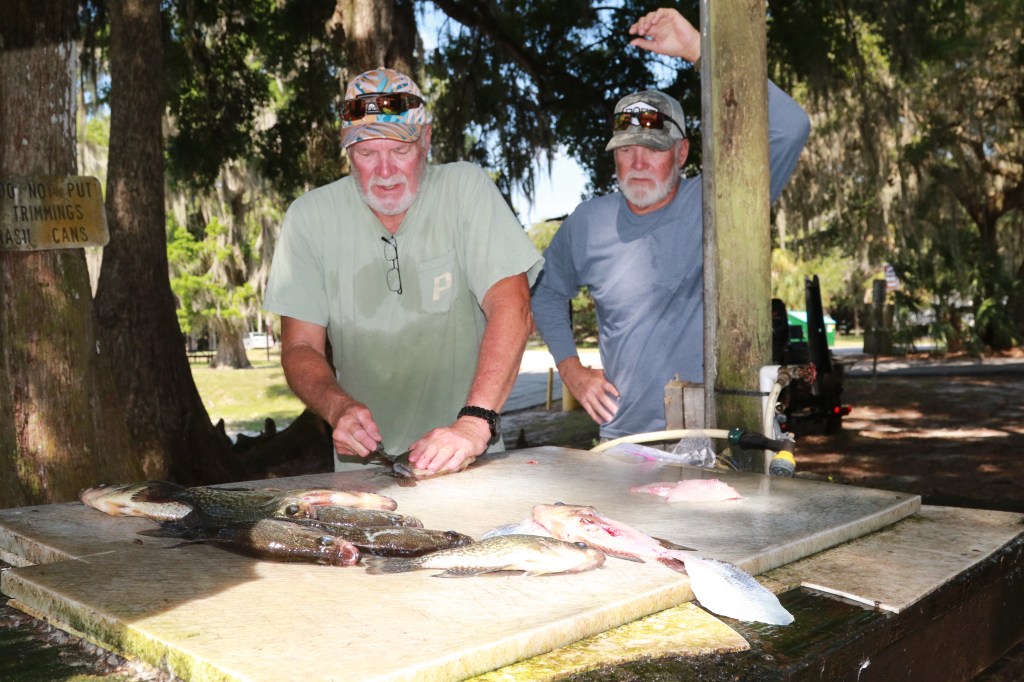
Clear perspective
Bryan and I took a couple steps back as Greg washed down the cleaning table. A dozen crappie filets stuffed a Ziploc bag and the redtail hawks had carried the tossed trimmings to their oak perches.
I asked the brothers what’s kept them coming back for more long after the material rewards have greatly diminished.
Greg shook the water from his hands, squinted like Clint Eastwood and bottom lined it: “We’re getting older, but our minds don’t think we’re any older. Our bodies remind us.”
During their prime tournament years, the Watts fished for year-making prizes. These days, it’s mostly local jackpots and benevolent events; more for fun than winnings.
Still, a mission is a mission.
“I fish just as hard whether I’m fun fishing or competitive fishing,” Greg said. “Everybody loves catching fish and I do too. I’ll never get tired of it.”
The brothers agree they do not miss the grind of professional tournament fishing, but perhaps reminiscent of days gone by, Greg said the zeal of personal achievement never fades.
“There have been a lot of days over the last four to five years when I’d come out here and catch 50-60 ‘specks and keep eight or 10,” he said. “Guys would say, ‘You didn’t keep your limit?’ I’d say, ‘I don’t want to clean a limit!’
“The idea is, ‘Can I still catch ‘em? Can I still do it?’ That’s the motivation. It’s something I want to achieve every time I come out here.”
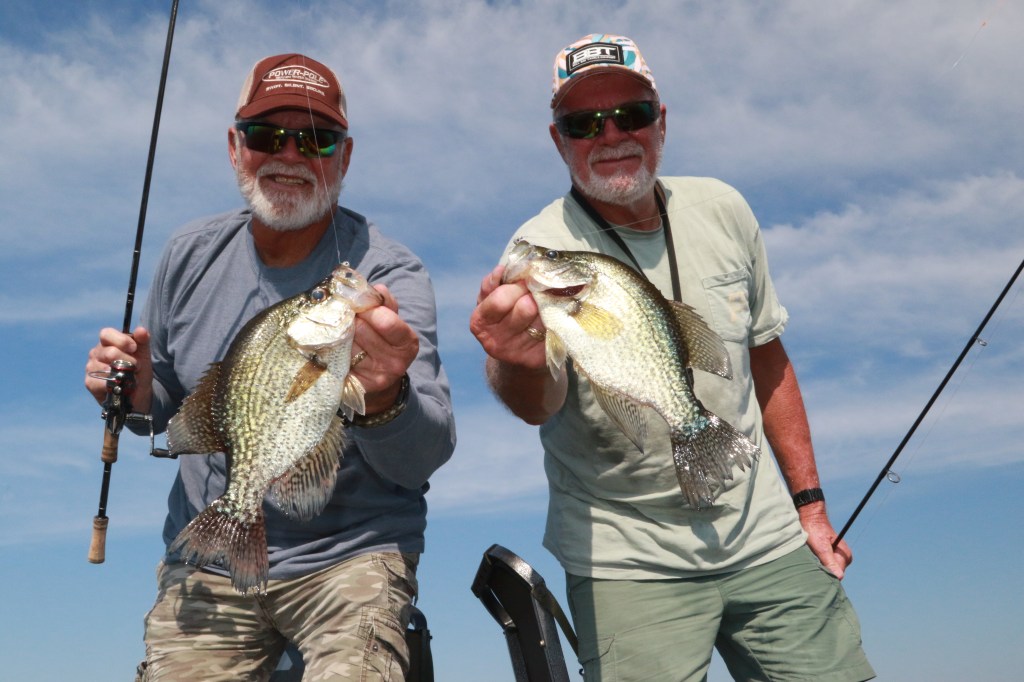
Winners always
Pondering their days of taking on premier redfish waters from Texas to the Carolinas, Greg said the thrill of top-tier competition will never lose its luster. However, with a treasure trove of priceless experiences and the hardware to prove their proficiency, the lifestyle is but a distant memory.
“From the outside looking in, a lot of people thought, ‘Y’all got it made, you fish for a living,’” Bryan said. “But it’s difficult when you’re away from your kids sometimes 10 days in a row or 20 days over a month and a half.”
To that point, the Watts brothers encourage aspiring anglers of salt or freshwater focus by stressing a time-consuming, yet essential element of the professional tournament lifestyle.
“You have to work for sponsors because those companies are paying you seven days a week to garner as much exposure as possible for their products,” Bryan said. “Was it very much a job? Yes, but it was very much a job we dearly loved and we were very good at it.”
Even with such driving passion, time takes its toll. Once we pass life’s equinox, the realization of more years behind than ahead provides calming perspective.
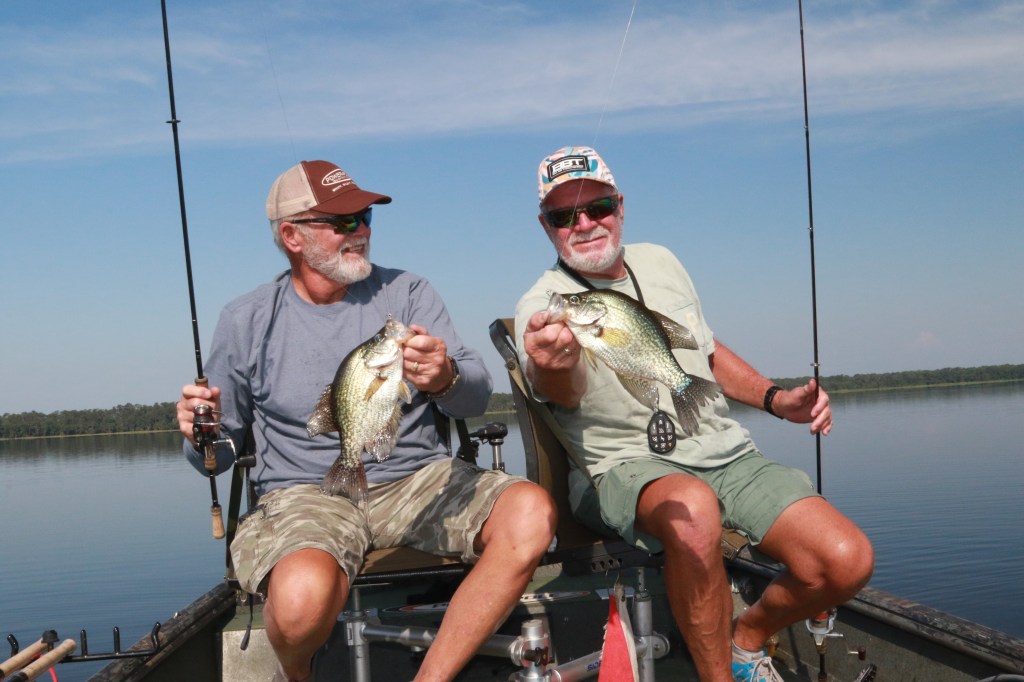
“It’s not that we’re ancient, but people our age understand how you used to feel 10 years ago and 20 years ago, compared to today,” Greg said. “It was demanding.
“The ones that shine, spend hours and hours, days and days, weeks and weeks at it. But your mind is what drives you to be the best.”
That might mean besting a field of 100 redfish teams, or it might mean outsmarting persnickety crappie on a hot, windless day.
The Watts brothers caught the fishing bug early and they’ve carried that chronic affliction into their mid-60s. It’s an itch that cannot be scratched into submission, as much as they’ve tried.
Redfish, crappie, the last minnow in the bait bucket; there’s always something to catch — and it will be caught.




